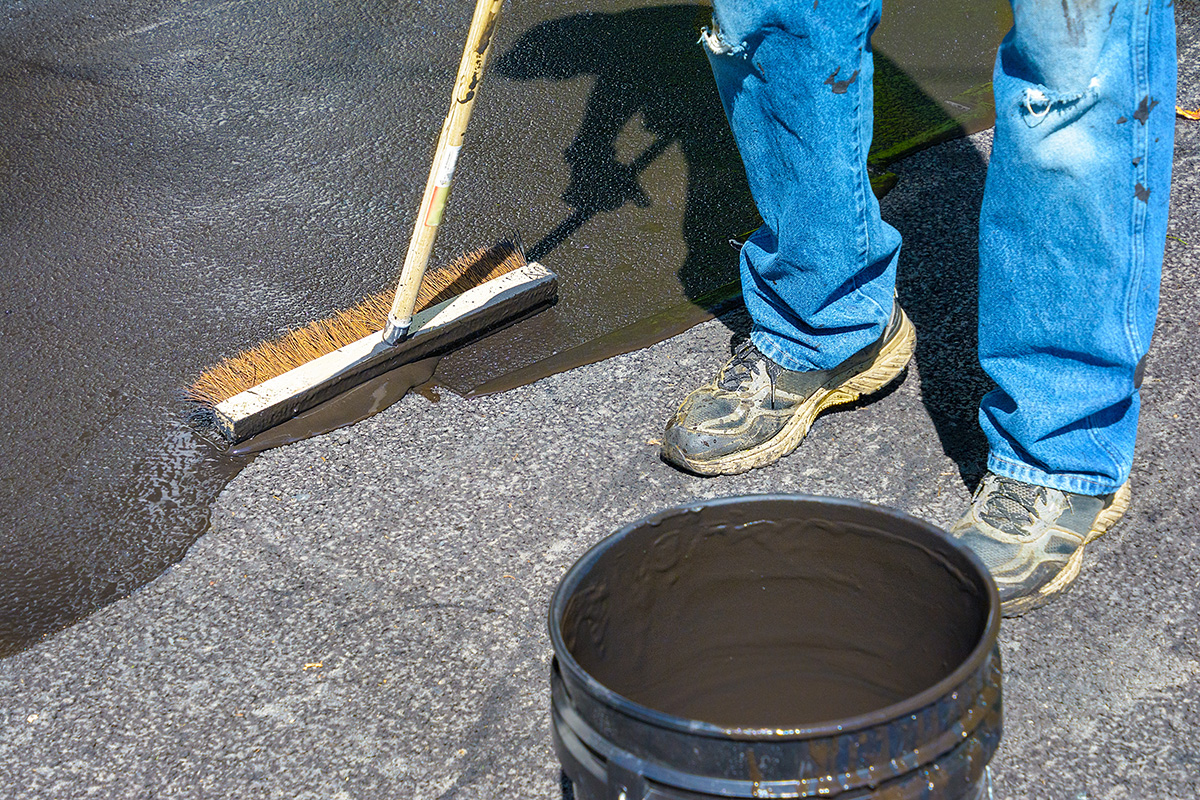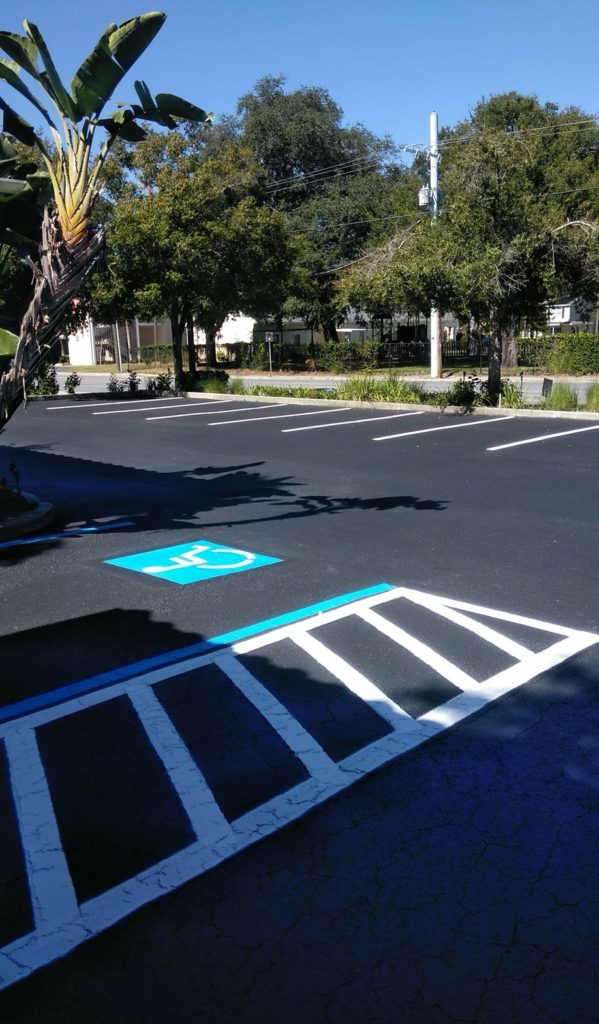Take Full Advantage Of Safety with Angle Parking Lot: Superior Asphalt Sealing
Take Full Advantage Of Safety with Angle Parking Lot: Superior Asphalt Sealing
Blog Article
Cold Mix Asphalt Vs. Hot Mix Asphalt: Which Is Right for You?

Composition Differences
Cold mix asphalt is generated by emulsifying the asphalt binder with water and an emulsifying representative prior to blending it with accumulation. The warm mix asphalt production process includes heating the aggregate and asphalt binder separately before combining them at the asphalt plant.
Furthermore, cold mix asphalt tends to be much less thick and more adaptable than warm mix asphalt. This flexibility makes it much better fit for locations with greater degrees of motion, such as driveways or roads with rush hour. On the other hand, warm mix asphalt is understood for its high longevity and resistance to rutting and fracturing, making it a favored option for highways and high-traffic roads where long life is critical.
Setup Process Variances
The procedure of setting up chilly mix and hot mix asphalt shows significant differences in their treatments and demands. Cold mix asphalt, being a much more versatile material, can be used directly from the bag or container onto the pit or damaged location. It requires marginal preparation work, such as cleansing the area and compacting the cool combine with hand devices. This makes it a practical option for fast and short-term fixes. In comparison, hot mix asphalt demands a more intricate setup procedure. It includes warming the blend to high temperatures prior to laying it down on a correctly ready base. The preparation consists of compacting the base, using a tack layer, and utilizing hefty machinery like pavers and compactors for a smooth and sturdy coating. Because of the home heating needs, warm mix asphalt installments are commonly brought out by specialists with specialized tools, making sure an extra permanent and structurally audio result.
Resilience and Long Life Factors
When considering asphalt choices, sturdiness and long life are critical factors to evaluate for lasting sidewalk efficiency. Warm mix asphalt (HMA) is recognized for its remarkable resilience and longevity. The high temperature levels throughout the blending and laying process permit better compaction, causing a denser and more powerful pavement structure. This brings about HMA being more immune to rush hour tons, harsh weather, and the impacts of aging contrasted to cool mix asphalt (CMA)
In regards to long life, HMA normally outperforms CMA because of its superior stamina and resistance homes. HMA pavements have a longer life span, requiring much less frequent repairs and upkeep, which can translate to set you back savings in the future. Furthermore, HMA sidewalks are a lot more quickly customizable to meet details task demands, further enhancing their sturdiness.
Cost Factors To Consider
Thinking about the financial ramifications is a vital facet when assessing the option between warm mix asphalt (HMA) and cold mix asphalt (CMA) for pavement projects. While the first expense of hot mix asphalt is normally greater than that of cool mix asphalt, HMA often provides an extra economical option in the long run due to its exceptional toughness and longevity.
Along with material prices, it's necessary to think about the expenses related to installment and upkeep when comparing HMA and CMA. HMA typically needs customized equipment and proficient labor for correct installation, which can affect total task costs. On the other hand, CMA is much easier to deal with and can commonly be used using simpler strategies, possibly reducing installation costs. Eventually, the decision in see page between HMA and CMA should consider not just the preliminary cost yet also the long-term financial ramifications to identify the most cost-efficient choice for the particular sidewalk project.
Environmental Influence Comparison
Comparison of the ecological effects between hot mix asphalt (HMA) and chilly mix asphalt (CMA) discloses distinct differences in sustainability methods. HMA manufacturing requires heats, resulting in raised power consumption and greenhouse gas emissions. The process likewise launches unpredictable natural substances (VOCs) and hazardous air pollutants (HAPs) into the environment. In contrast, CMA is produced and used at reduced read the full info here temperature levels, reducing energy usage and exhausts considerably. The lower production temperatures of CMA lead to reduced gas intake and reduced degrees of CO2 exhausts, making it an extra eco-friendly alternative.
Additionally, the use of CMA usually includes recycling existing asphalt sidewalk, promoting source conservation and lowering the amount of waste sent out to garbage dumps. By deciding for CMA over HMA, road construction projects can add positively to ecological preservation efforts.
Final Thought
Finally, the choice visit this site right here in between cold mix asphalt (CMA) and warm mix asphalt (HMA) depends on different aspects such as make-up, installation process, resilience, durability, price, and environmental effect. asphalt repair. While CMA offers a quick and economical option for minor repairs, HMA makes sure exceptional toughness and long life for rush hour areas. Think about these aspects meticulously to determine which sort of asphalt is the best option for your paving needs

Thinking about the economic implications is a critical aspect when examining the selection between hot mix asphalt (HMA) and chilly mix asphalt (CMA) for sidewalk projects. While the first cost of hot mix asphalt is generally greater than that of cold mix asphalt, HMA frequently supplies a more affordable option in the lengthy run due to its superior sturdiness and long life. angle parking.Comparison of the environmental effects in between warm mix asphalt (HMA) and cool mix asphalt (CMA) discloses distinctive distinctions in sustainability practices.In conclusion, the choice between cold mix asphalt (CMA) and hot mix asphalt (HMA) depends on various elements such as structure, setup process, toughness, long life, price, and ecological influence
Report this page